While a home inspection is not required by law in Washington, it certainly is wise for a buyer to hire a home inspector to examine the home and discover any possible major problems that may affect their desire to complete the purchase.
While most people get that, there are some major misunderstandings about what a home inspection is and is not. In this article, we interview a home inspector in Sequim to learn what a home inspection is and what is and is not included in a home inspection.
What is included in a home inspection?
A home inspection involves the inspection of key systems in a home, including:
1. The grounds. This includes service walks, driveways and parking, porches, steps, patios, decks and balconies, fences, landscaping that effects the foundation, retaining walls, hose bibs, and any other conditions that may effect the house itself.
2. The electrical. This includes the heating system, air conditioning or heat pump, outlets, and lighting.
3. The roof. We inspect the eaves, the gable, the roof covering (shingles), flashing, skylights, and plumbing vents.
4. The exterior. This includes the chimney, gutters and scuppers or eavestrough, siding, trim, soffits, fascia, flashing, windows, and crawlspace.
5. The garage. We inspect the garage door and the opener, the floor condition (concrete or otherwise), exterior service door, electrical issues, fire separation from the house, and the ceiling.
6. The kitchen. This includes countertops, cabinets, plumbing components, walls and ceiling, heating and cooling source, and appliances.
7. The laundry room. This includes the laundry sink, plumbing, venting for the dryer, electrical, G.F.C.I., appliances, and gas shut off.
8. The bathrooms. This includes a detailed inspection of the tubs and sinks and the plumbing, the shower, toilet, walls and ceilings, heating, circulation, and for each of the bathrooms.
9. The bedrooms. Each bedroom is inspected for all the necessary components, electrical outlets working, vents, heating and cooling, fans, ingress and egress, fire alarms, and doors.
10. The interior. This includes everything already listed but also interior windows, window seals, fireplace, stairs, steps, and smoke and carbon monoxide detectors.
11. The attic. The attic is inspected for sound structure, the type of insulation and whether it is sufficient, venting, where fans are exhausted to, HVAC duct, chimney case, evidence of condensation or moisture, and vapor barriers.
12. The crawl space. This involves inspecting for access, foundation walls, seismic bolts, drainage, ventilation, girders/beams/columns, joists, sub flooring, moisture stains, insulation, vapor barrier, and any signs of problems.
13. The plumbing. All plumbing systems are checked throughout the house, including water service and pressure, main shut offs, well pump, water heater (capacity and combustion air venting), and water softener.
14. The heating system. The system is examined and operated to test it for correct operations and heating, including electrical controls and systems. Cooling systems are also tested extensively.
There is much more to an inspection, because these are just the categories and each category involves a detailed inspection. While some inspectors rush in and out in 20 minutes, a good inspector is known for often taking two or three hours to complete a home inspection, but that only points out how through his inspections are.
I ask our inspector what is one of the challenges for him in working with buyers, and he shared this, “Buyers think that peripherals are part of the inspection. But things outside the home, like sprinkler systems, hot tubs, septic systems, and so on are not part a home inspection. These are what we call peripherals. A home inspection inspects the home, not peripherals.”
“Sometimes buyers don’t understand when they hire a home inspector that there must be a signed contract and that the contract explains what is not included in an inspection. We do a tremendous amount of work for $350 and we put all that in writing in a detailed written report, but some people are wanting a guarantee or an insurance policy. Realtors often will tell buyers that a home inspection is cheap insurance, but is definitely not insurance. What is sometimes hard for buyers to understand is that when my inspection is done, while I have done the inspection to the best of my ability, my liability ends when my inspection is done. Home inspectors are not home insurers. If a buyer wants insurance, they need to pay for an insurance policy through a company that offers warranties on home appliances and other items.” He explained that without the contract, the home inspector is not covered by his liability insurance. It is his insurance company that requires he have a signed contract.
Can a person do their own inspection or just have their contractor do it? Sure. Is it a good idea? No. There’s a big difference between an experienced and professional home inspector and someone who has just enough knowledge to be dangerous.
Even a contractor can be looking at a window in a house and see it differently than a home inspector. A contractor is looking to see if it was installed correctly and that it was caulked correctly. Our inspector asked a contractor once, “Did you notice the thermal seal is blown?” “Oh, no I wasn’t looking for that.” A home inspector is trained to inspect things most people don’t even notice.
Hiring a home inspector who is experienced, competent, professional, and honest is critical.
FAQ
[sc_fs_multi_faq headline-0=”h2″ question-0=”What is a home inspection?” answer-0=”A home inspection for a buyer is a thorough examination of the interior of the home, a structural review, electrical and plumbing, appliances, and the roofing, and the home inspector will also crawl through the attic and the crawl space looking for potential issues of concern. The buyer can then use the home inspection report to ask the seller to correct problems or the buyer may choose to terminate the transaction for serious issues.” image-0=”” headline-1=”h2″ question-1=”How much does a home inspection cost?” answer-1=”A professional home inspection will cost a buyer between $350 and $450 for most houses, but the fee will be greater for mansions and properties with shops or guest homes.” image-1=”” headline-2=”h2″ question-2=”Does a home inspection include outbuildings?” answer-2=”A basic home inspection does not include outbuildings, detached garages, shop buildings, or guest homes. The inspection is of the home itself, the interior and the exterior siding and roofing.” image-2=”” count=”3″ html=”true” css_class=””]
Last Updated on December 17, 2019 by Chuck Marunde

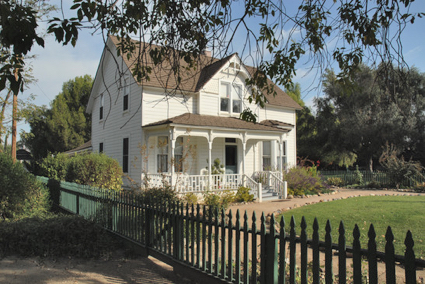
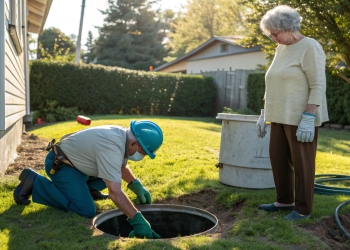
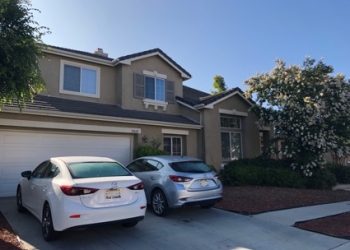
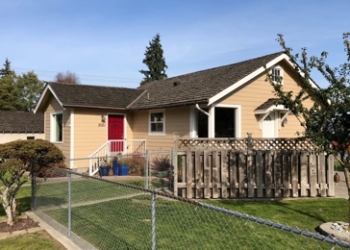
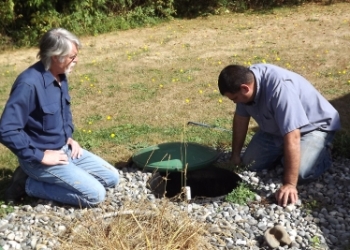
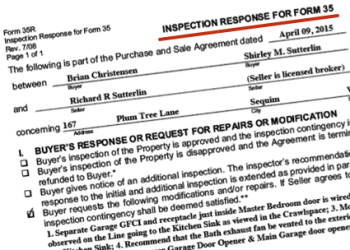
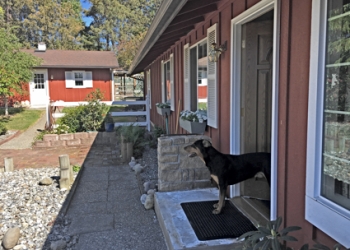


























The peace of mind a home inspection provides is invaluable. Balance the modest fee against the potential costs of buying blind and it becomes an easy choice to make.
I’ve purchased many a home and many an investment property over the years and a home inspection is a must every time, $350, that’s peanuts compared to what bills you could encounter.
Wow! I have been reading through your blog posts and I just want to say that I am very impressed and thankful for how informative they are. They are great for both agents and home buyers and sellers.